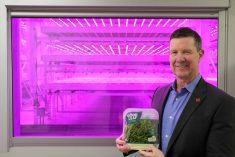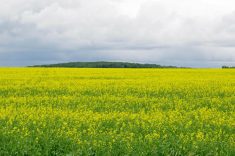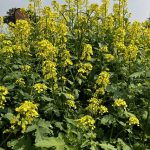More of Manitoba’s small vegetable farmers will have access to AgriInsurance this year.
Growers that previously did not meet minimum acreage requirements under the Manitoba Agricultural Services Corporation (MASC) will be able to bundle their crops to make up that gap, Manitoba Agriculture Minister Ron Kostyshyn announced at Manitoba Ag Days Jan. 16.
Why it matters: Better business risk management means a more robust safety net for Manitoba’s smaller vegetable farms.
Read Also

Market impacts of canola headlines need digesting
January 2026 has been quite the month for Canadian canola trade, how will it all ripple out in the market?
MASC’s Vegetable Acreage Loss program typically requires farms to grow at least half an acre of a particular crop to qualify for coverage.
A new pilot program dubbed the Small Farm Acreage Loss program will change that, Kostyshyn said.
Under MASC’s new pilot, producers will be able to base their eligibility on the combined footprint of their eligible vegetable crops .
“We encourage the demand for locally grown food and, in order for them to be conscientious in a business perspective, (producers previously) had to grow ‘x’ amount of acres,” Kostyshyn said following his address.
With the ability to bundle crops, producers will now be eligible for insurance on the land base they already have, he noted.
“I think it’s a recognition of how many relatively small farms there are in Manitoba, to the economic benefit that they have,” said David Van Deynze, MASC chief product officer.
He also noted the pilot’s expanded crop eligibility list. Several crops not eligible for standard Vegetable Acreage Loss insurance will be covered if bundled under the pilot.
The existing program covers broccoli, cabbage, cauliflower, carrots, parsnips, rutabagas, sweet corn, onions, leeks, peppers, pumpkins and winter squash. The pilot adds beets, garlic, lettuce and potatoes to the list.
However, those additional crops are not eligible for hail insurance, according to an MASC factsheet on the program.
Landlords cannot take advantage of the program.
Further, MASC materials say all vegetables must be adequately irrigated, and potatoes aren’t eligible if they are “selected under the AgriInsurance Contract for production insurance.”
“It’s still a pilot at this point because we’re learning as we go as well,” Van Deynze said. “We call things a pilot when there’s some uncertainty around how the program’s going to work and that sort of thing. We feel like it gives us more flexibility to examine things and potentially make changes if we need to as time goes on.”
Pilot nuts and bolts
Farmers can expect a 15 per cent salvage threshold under the pilot.
Under the program, producers can expect 25 per cent coverage for early-season losses (those before the end of the extended seeding deadline). If the farm covers more than five acres, that damage must be in “contiguous blocks of one half-acre or more,” while smaller farms must have at least a tenth of an acre affected for the program to kick in.
Standard loss claims later in the season must only cross that one-tenth-of-an-acre threshold, and the deductible is set at 10 per cent “of the total insured acreage of the affected small farm eligible vegetable crops.”
Cost of production will underpin coverage values for each crop under the pilot, as they do under the existing Vegetable Acreage Loss program, MASC has said, but the basketed coverage value will be based on a weighted average of the coverage values of the crops included in the bundle.
Producers will have to submit seeded acreage reports by June 30 (pushed back to July 2 for this year), but those including broccoli, cabbage, cauliflower, beets or lettuce in their basket will also have to file updated numbers by July 31, since those crops have later deadlines.
Farmers have until April 2 this year to note their application for the pilot on their Vegetable Acreage Loss paperwork. The standard deadline outside of this year will be the end of March.
Latest veggie insurance change
It is the second year in recent seasons that smaller-scale vegetable producers have seen better crop insurance options. In January 2022, the previous provincial government announced that minimum acreage requirements would lower from three acres to the current half an acre.
That news was welcomed by groups like Direct Farm Manitoba, which had previously advocated for better business risk management programs for its members operating on a smaller scale.
















